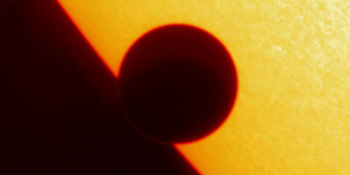Campus News
Astronomy lectures spotlight rare astronomical event on June 5
Lectures on May 18, May 25, and June 1 will explain the scientific and historical significance of the transit of Venus.



On the afternoon of June 5, 2012, the planet Venus will pass in front of the sun as seen from Earth, an extremely rare event that will not happen again until December 2117. Known as the transit of Venus, this event will be the subject of a series of Friday lectures at UC Santa Cruz by faculty in astronomy and planetary science.
These free public lectures will take place on May 18, May 25, and June 1 at 7 p.m. in the Media Theater on the UCSC campus.
May 18, “Venus Transits through History” Adriane Steinacker, lecturer in astronomy and physics
May 25, “Venus in the Space Age” Graeme Smith, professor of astronomy and astrophysics
June 1, “Why isn’t Venus more like Earth?” Francis Nimmo, professor of Earth and planetary sciences
The lectures, sponsored by the Department of Astronomy and Astrophysics, will explain the scientific and historical significance of the transit of Venus.
For more information or for disability-related needs, please call (831) 459-3581.
There will also be a public viewing of the transit itself on Tuesday, June 5, starting at 3 p.m. Telescopes equipped with the proper filters to allow for safe viewing of the sun will be set up next to the Porter Wave sculpture at Porter College.
Lick Observatory will also be hosting a public viewing of the transit of Venus on June 5 from 2 to 8:30 p.m. For more information, go to ucolick.org/public/transitofvenus.html.